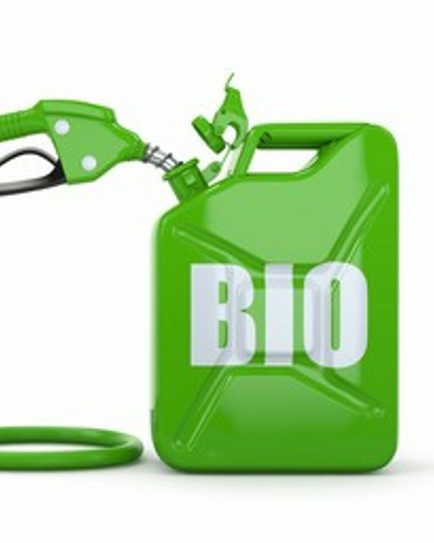Biofuel Production by Algae
Due to decreasing fossil fuel resources and increasing greenhouse gas emissions, we investigated the prospect of producing alternative eco-friendly, carbon-neutral, renewable, and sustainable biofuels such as biodiesel, bioethanol, biomethane, biocrude, and biohydrogen. Microalgae are considered as a potential source for the production of biofuels. Carbon-neutral biofuels from algae are used to mitigate global temperature rise.
Biodiesel from Algae
Biodiesel is produced by a mono-alcohol esterification process in which triglycerides are reacted with a mono-alcohol by a base, acid, or enzyme. Microalgae have found their use in biodiesel production because certain species contain large amounts of oil. Microalgae biodiesel is usually produced by extracting the oil and then esterifying the algal oil.

Bioethanol from Algae
In the last decades, there has been interested in the potential of biofuel production from microalgae. Anaerobic alcoholic fermentation using yeast is the conversion of biomass material containing sugars, starch, or cellulose into ethanol. Although most microalgae, with the exception of some microalgal species, are relatively low in carbohydrates, the biomass composition of microalgae can be manipulated by creating various stress conditions during the culture process. For instance, under stressful conditions, such as nutrient starvation or high light intensity, many microalgal species accumulate carbohydrates in their biomass, which can reach significantly high levels of up to 65%.
Biomethane from Algae
Various feedstocks have been searched for the production of cost-effective biogas/biomethane. Biomethane is produced through the anaerobic digestion of biomass/biowaste. Specific methane yields of microalgae range from 100 to 450 l/kg volatile solids. An additional advantage of microalgal feedstocks is that the biomass from which lipids are extracted can be used for anaerobic digestion, resulting in the production of both biodiesel and biomethane.

Biocrude/Syngas from Algae
Hydrothermal liquefaction of biomass is the thermochemical conversion of biomass into liquid fuels by processing it in a high-temperature, pressurized water environment for a sufficient time to break down the solid biopolymer structure into its main liquid components. In the temperature range of 520 and 647 K, the process leads to the production of a liquid fuel known as biocrude oil. Biocrude oil is similar to petroleum crude oil. At temperatures above 647 K, a gasification reaction occurs, a process defined as hydrothermal gasification, resulting in the production of a synthetic fuel gas. For example, thermochemical liquefaction of Botryococcus braunii was carried out at 300 °C, obtaining a maximum yield of 64% dry heavy oil with an HHV of 45.9 MJ/kg.
Biohydrogen from Algae
Hydrogen is a clean and renewable energy source that does not produce carbon dioxide as a byproduct when used in fuel cells to generate electricity. Biological systems offer a considerable number of methods to produce hydrogen, including direct biophotolysis, indirect biophotolysis, photofermentation, and dark fermentation. It has been observed that under anaerobic conditions, the green alga Scenedesmus obliquus can both use H2 in the dark as an electron donor during CO2 fixation and evolve H2 in the light.

Our Services
With many years of experience in algae research, Lifeasible is committed to providing solutions to our customers worldwide in the process of algae research. We have the professional equipment and experienced teams to provide high-quality algae isolation and culture services, algae engineering services, algae analysis services, algae genetic screening services, algae-based production services, algae monitoring services, algae treatment services, and algae-based biosensor services for environmental monitoring. Please contact us for more information.
Our services are for research use only and not for any clinical use.